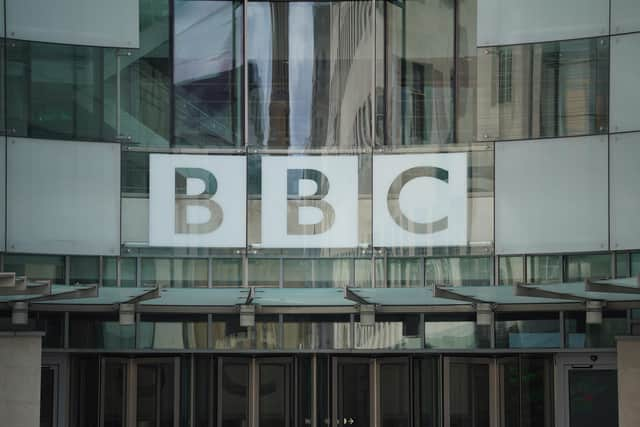The BBC risks losing younger viewers with licence fee hikes - David Behrens
A licence? For the TV or the Hoover? Each seemed as preposterous to him as the other.
As it turned out, he wasn’t daft. He has no aerial and he doesn’t watch live on the internet so the law says he doesn’t need a licence after all. And he’s not the only one.
Advertisement
Hide AdAdvertisement
Hide AdHe is part of a new generation of TV viewers who get their video entertainment on YouTube from people I’ve never heard of. Sitting down to watch an evening of normal programmes isn’t in his nature.


So the BBC is going to lose out on the £169.50 it might have hoped to take from him when the licence fee goes up in April. Multiply that by tens of thousands of similarly inclined non-viewers and it amounts to a hole in the corporation budget the size of Gary Lineker’s salary.
It knows this very well which is why it is deprioritizing TV channels in favour of online programmes. Its executives have been clear about this in repeated press conferences. What they haven’t explained is how they expect to finance the flight from broadcasting by continuing to tax the ownership of a television set.
The one justification for licensing your TV has been that the fee will subsidise the content shown on it. If it’s being spent elsewhere, the argument disappears faster than Jeremy Clarkson from Top Gear.
Advertisement
Hide AdAdvertisement
Hide AdAnd while we’re on the subject, have you heard any good podcasts lately? I know I haven’t but I must be in the minority because 21 million people in Britain love them, according to the latest figures.
They have a bigger audience than Radio 2 and Radio 4 combined, because listeners can hear who they want, when they want. As a result, the BBC is cutting itself a piece of that pie too, by producing podcasts of its own – as if 10 national networks and what’s left of local radio isn’t airtime enough.
It’s entirely true to form because ever since it was incorporated a century ago, the BBC has tried to break out of whatever box it was put in. It believes that as the national broadcaster its reach must be infinite. It is the last vestige of the British Empire, appropriating territory wherever it finds it, even though it has no claim to it. It’s imperious and anti-competitive.
This might be acceptable if it were peerless and beyond reproach but it is neither. Indeed it has many peers and none of them benefit from the guaranteed income of the licence fee. And while it continues to have many excellencies – we can disagree all day on which those might be – it is getting more wrong these days than it gets right.
Advertisement
Hide AdAdvertisement
Hide AdTake the case of Martin Bashir’s notorious interview with Diana, Princes of Wales, obtained as we now know by deception and covered up by successive managements. It was back in the news this week when a judge ordered the handing over of thousands of emails that might shed light on the scandal. The corporation had been “inconsistent, erroneous and unreliable” in its dealings on the matter, he said.
Diana’s brother Earl Spencer hit the nail on the head. “The problem here is one of the integrity of people at the BBC,” he said. “People…have hidden behind expensive lawyers at a time when the BBC is making cuts. And I think that’s obscene.”
It’s obscene but not unusual. Just a few weeks earlier it was said to be facing a £841m bill for handing out the sort of gold-plated pensions which for the rest of us disappeared at the same time as Dixon of Dock Green. The cost is threatening to further curtail programme budgets, which bosses will always sacrifice to save themselves.
All these issues have a common answer and it is for the BBC to do less – and to do it more transparently. If you accept its traditional argument that it must be flexible enough to grow with its audience then it must also shrink when the audience goes elsewhere. If it insists on chasing viewers who have found new ways of watching it must find new ways of paying for itself.
Advertisement
Hide AdAdvertisement
Hide AdThat doesn’t mean we should do away with it; it’s a national institution, after all. But so is the British Museum and if the BBC carries on as it is, that’s where it will be, stuffed and mounted next to the Elgin marbles and other appropriations of Empire. People will visit it and learn about the TV licence in the way they’re taught about window taxes.
And as they chuckle at how gullible we were back in the 2020s, they will say to themselves: “I bet they’d have paid a tax on owning a Hoover if they’d been told to.”
Comment Guidelines
National World encourages reader discussion on our stories. User feedback, insights and back-and-forth exchanges add a rich layer of context to reporting. Please review our Community Guidelines before commenting.